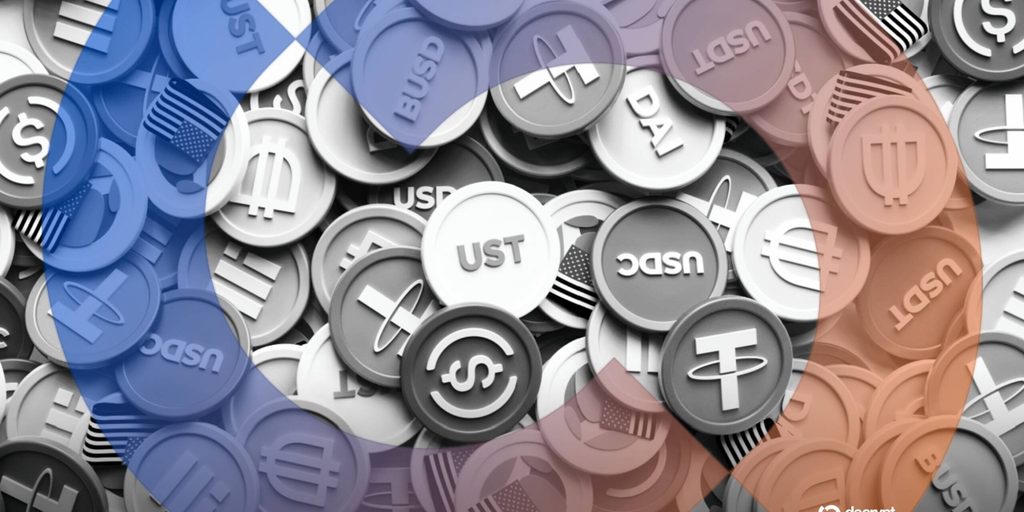What is Polymarket?
Polymarket is a decentralized prediction market that allows users to speculate on the outcome of various events, including sports, elections, and more. It is built atop the Ethereum and Polygon blockchain networks and uses automated market makers (AMMs) to provide liquidity for markets.
How Does Polymarket Work?
Prediction markets have existed in one form or another since the 16th century. They allow users to speculate and bet on the outcome of any future event—as long as someone has set up a market for it. Users can bet on the outcome of sporting events, elections, legal cases, and anything with a clear or provable outcome.
The core concept is very simple: if your prediction is right, you win money. If you’re wrong, you lose the money you used to place the bet. The price of one “share” in a prediction market ranges from between $0.00 to $1, and its price correlates to its percentage chance of winning, or its “odds.”
For example, if a share for one candidate in an election costs 63 cents, that candidate has a 63% chance of winning, according to this specific market. If you want to bet on the outcome of the election, you’d buy shares of whichever candidate you think will win. When the election is over, the market will resolve, and the price will go to $1.00 per share for whichever candidate won.
Types of Prediction Markets
There are several different types of prediction markets.
- Binary markets are markets with two options that will resolve to either $1 or 0 (yes, or no), such as “Will it rain on Monday of next week”?
- Categorial markets are markets with multiple options, such as “Who will win the U.S. Election in 2024?”
- Scalar markets are markets that resolve based on whether something is higher or lower than a specified bound, such as “Will the population of the U.S. be higher or lower than 333 million in its next census?”
How Do Prediction Markets Settle Outcomes?
Settling outcomes, or providing proof that a prediction market has come to an end with a specific result, differs slightly from platform to platform. For example, when a market is created on Augur a specified individual is nominated who is responsible for submitting proof of the outcome of that market. They can be challenged if the public believes that the outcome was wrongfully determined.
Polymarket uses a decentralized oracle called UMA—where anyone can submit proof of an outcome, and anyone can challenge it.
Advantages of Decentralized Prediction Markets
Decentralized prediction markets claim to be more efficient than their centralized counterparts because they lack intermediaries, and as a result have fewer fees. Their decentralized nature also allows for a higher degree of privacy than in traditional prediction markets, and they tend to operate using cryptocurrency as a means of payment, making them more accessible to players around the world.
Challenges and Regulation
Despite their potential benefits, decentralized prediction markets have thrown up challenges for regulators, since laws around gambling, securities, and contracts differ between jurisdictions.
Their decentralized nature has not shielded crypto prediction markets from regulatory scrutiny, with a U.S. Commodity Futures Trading Commission (CFTC) spokesperson noting that, “offering or facilitating a product or activity by way of releasing code onto a blockchain does not absolve any entity or individual from complying with pertinent laws or CFTC regulations,” in response to a question about Augur. In 2022, Polymarket was hit with a $1.4 million fine by the CFTC, which accused the prediction market of letting people make bets without being registered.
Conclusion
Polymarket is a decentralized prediction market that allows users to speculate on the outcome of various events. It uses automated market makers to provide liquidity for markets and offers a decentralized and private way for users to place bets. While it has its advantages, including lower fees and greater accessibility, it also faces challenges and regulatory scrutiny.
FAQs
Q: What is a prediction market?
A: A prediction market is a type of market that allows users to speculate and bet on the outcome of any future event—as long as someone has set up a market for it.
Q: How does Polymarket work?
A: Polymarket is a decentralized prediction market that uses automated market makers to provide liquidity for markets. Users can bet on the outcome of various events, including sports, elections, and more.
Q: What types of markets can be created on Polymarket?
A: There are several different types of markets that can be created on Polymarket, including binary markets, categorial markets, and scalar markets.
Q: How do prediction markets settle outcomes?
A: Settling outcomes, or providing proof that a prediction market has come to an end with a specific result, differs slightly from platform to platform. Polymarket uses a decentralized oracle called UMA—where anyone can submit proof of an outcome, and anyone can challenge it.
Q: Are decentralized prediction markets legal?
A: The legality of decentralized prediction markets is uncertain and may vary depending on the jurisdiction. In the United States, for example, the CFTC has taken action against several prediction markets, including Polymarket, for allegedly violating regulations.
Q: Can I use credit or debit cards to bet on Polymarket?
A: Yes, Polymarket has added support for credit and debit card payments, as well as Apple Pay and Google Pay, via MoonPay in July 2024.









